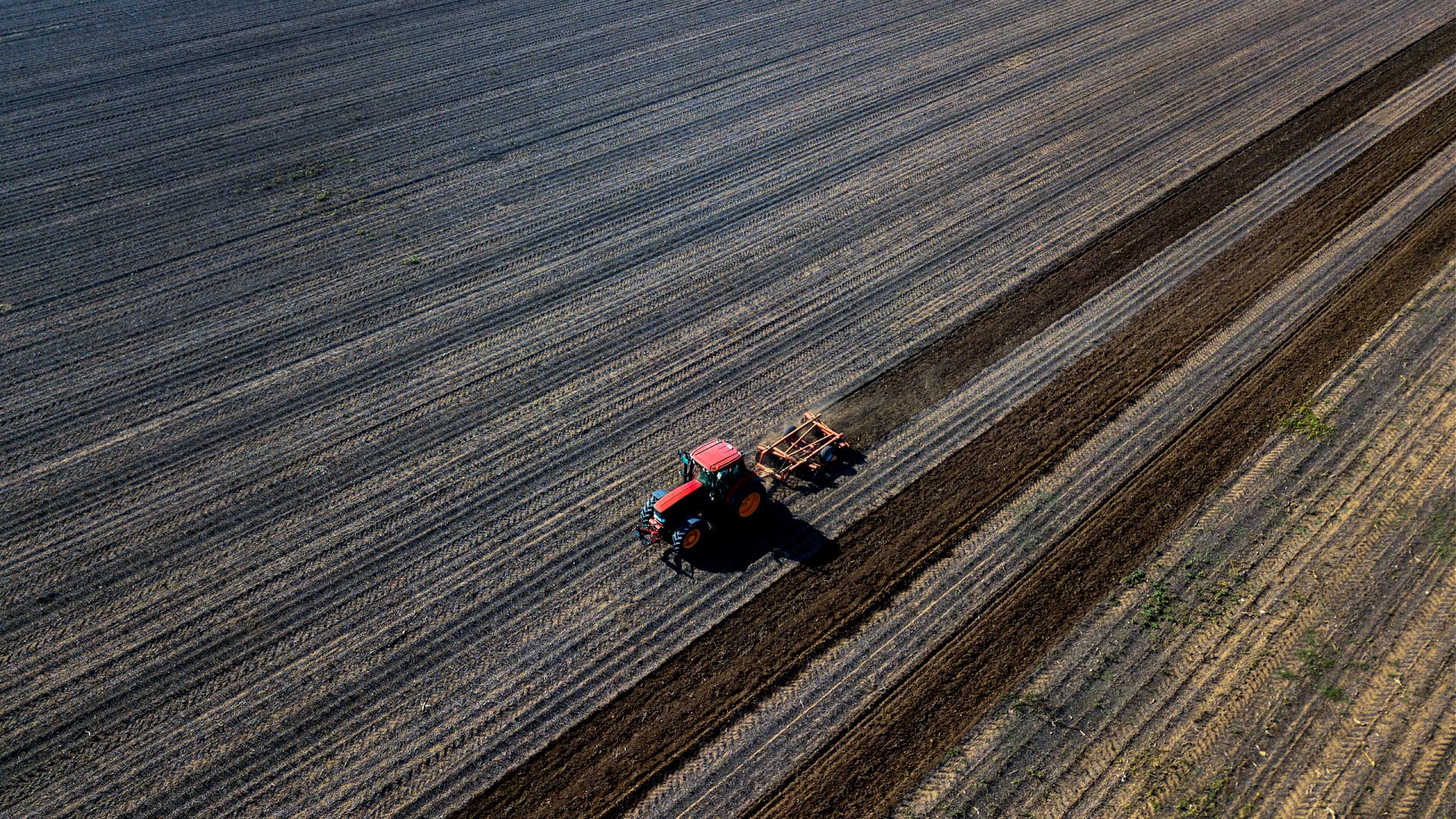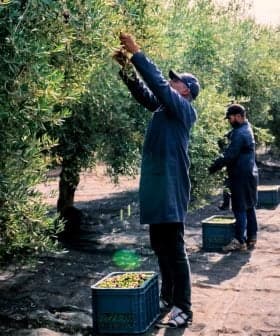Campaign Aims to Curb Misuse of 'Regenerative' in Agriculture

The Organic Farming Research Foundation (OFRF) has launched an initiative to educate consumers about regenerative agriculture in response to concerns about the misuse of the term. The initiative aims to help organic farmers communicate how their practices are regenerative and differentiate them from conventional agriculture practices that may be labeled as regenerative. Additionally, California olive farmers are promoting organic and sustainable agriculture to meet the rising global demand for organic olive oil while emphasizing the environmental and health benefits of their products.
As recent evidence indicates the increasing popularity of organic and sustainable food among United States consumers, advocates are concerned about the misuse of language such as “regenerative agriculture.”
To that end, the Organic Farming Research Foundation (OFRF) has launched a new initiative to help organic farmers educate consumers about what regenerative agriculture entails.
Regenerative agriculture is a newish buzzword, and because it does not have a legal definition, it is vulnerable to greenwashing.
“We created the Organic is Regenerative Toolkit to help people understand how organic management practices are regenerative and to provide resources for people to communicate those messages to their audiences,” said Elizabeth Tobey, OFRF’s communications contractor.
Regenerative farming practices include cover cropping, crop rotations and increasing biodiversity, which are the backbone of organic systems.
See Also:A Rise in Sustainability Marketing in the Olive Oil Sector“Regenerative agriculture is a newish buzzword, and because it does not have a legal definition, it is vulnerable to greenwashing,” Tobey said. “Big Ag companies are already beginning to co-opt the term and use it to refer to conventional agriculture that may have adopted one conservation practice, such as reduced tillage.”
While OFRF noted that any shift toward conservation practices in conventional agriculture is welcome, the organization is uneasy about the liberal use of the term “regenerative.”
“Calling it regenerative misses the holistic, systems-based point of a truly regenerative system,” Tobey said. “Because organic is a federally regulated term, with a legal definition, it holds producers accountable and is a label consumers can trust.”
Tobey emphasized the need for a legal definition of “regenerative agriculture,” especially when policymakers are beginning to understand agriculture’s impact on climate change and mitigation.
According to OFRF, it is critical to support organic farmers who have followed climate-friendly agriculture in a way that cares for people and the planet for decades.
California’s olive farmers are among those promoting organic and sustainable agriculture, especially as global demand for organic olive oil is expected to rise substantially.
Allied Market Research shows that the global organic olive oil market was valued at $933 million in 2021 and is set to rise to $2.2 billion by 2031. According to Polaris Market Research, the total olive oil market was valued at $14 billion in 2021.
“We are quite aware that there is a significant and growing market for organic olive oil within the United States, and we are eager to see more organic olive orchards planted in California to meet this demand,” said Samantha Dorsey, the president of McEvoy Ranch.
“Olives have a compelling environmental sustainability story, and there is a real and measured positive impact on public health when people eat more extra virgin olive oil,” she added.
For organic farmers and advocates, OFRF is trying to make it easier to articulate the benefits of organic farming systems and their regenerative impact.
According to the foundation, organic farmers must promote their role in supporting a resilient planet, building healthy communities and promoting transparency.
OFRF also instructs producers to demonstrate the economic benefits of organic farming by promoting the health and safety of farm workers, local communities and animals.
Tobey added that farmers also must emphasize that the ‘organic’ label is third-party certified and uses best practices that continue to improve.
“Established olive orchards are huge carbon sinks since they are a permanent crop,” Dorsey said. “At McEvoy Ranch, we run a no-till farming operation which further enhances soil health and carbon sequestration.”
Dorsey emphasized that extra virgin and virgin olive oils are physically extracted, leaving far fewer undesirable by-products behind.
McEvoy Ranch composts all pumice from the milling operation and applies it in the organic orchards. Furthermore, olive oil does not require a cold chain for transport, which keeps the transportation carbon footprint small.
While environmentally friendly olive oil production starts in the groves, the process continues in other activities such as bottling and selecting packaging materials.
“Indirect emissions from goods and services are the largest source of greenhouse gases in a supply chain,” according to California Olive Ranch’s 2023 impact report.
COR is the United States’ largest olive oil producer, with almost three million trees under cultivation. According to COR’s findings, for every liter of olive oil produced from their California orchards, “our trees and soil are estimated to have captured more carbon from the air than we emitted to grow, harvest and produce that oil.”
The COR report said the company decreases emissions associated with packaging by bottling with aluminum bottles, packaging in bag-in-box containers and planning to transition more packaging cases to 100 percent recycled materials.
While good environmental stewardship is top of mind for an increasing number of California producers, they remain aware that the primary function of bottling and packaging materials is to protect olive oil from oxygen and light.
“McEvoy Ranch has been working with the same glass bottle company for over 25 years now,” Dorsey said. “We have a strong working relationship with this bottle company because of its dual commitment to quality and sustainability.”
“Our olive oil bottles contain over 75 percent recycled material,” she added. “Our partner glass company’s sustainable certifications have been earned due to its significant investments in sustainable technologies in energy production, carbon dioxide emission reduction, water management and raw material use reduction.”
From a social sustainability standpoint, Dorsey noted that the olive industry helps stabilize the California workforce, employing farm workers for the November and December harvest when not much other work is available.
She also highlighted how olive growers contribute to health. “We are producing one of the healthiest plant-based fats you can eat,” she said. “It is a monounsaturated fat filled with phenols and other healthy compounds that reduce inflammation and promote good cholesterol.”
Explaining the benefits of organic farming for olive oil production can be challenging, but Tobey hopes the OFRF’s initiative will help.
“We are excited to share the toolkit with farmers as we know farmers who have been using organic methods for years,” Tobey said. “Now because Big Ag is starting to hype up regenerative, these farmers are seeing their customers get confused, customers asking, ‘are you regenerative?’”
Despite the long tradition of organic agriculture, farmers and researchers agree that many consumers and policy-makers do not fully understand what organic means.
“It is important for consumers and journalists to know that being certified organic is a serious commitment from the farmer, and the annual inspections are rigorous, tough and thoughtful,” Dorsey said. “We are committed to keeping it this way so that the term ‘organic’ is not diluted and can be trusted.“
“California’s agricultural industry has an enormous opportunity to contribute to building a sustainable future and mitigating the negative effects of climate change,” she added. “Being certified organic is one piece of this solution and an important step towards creating a sustainable, stable food system.”









